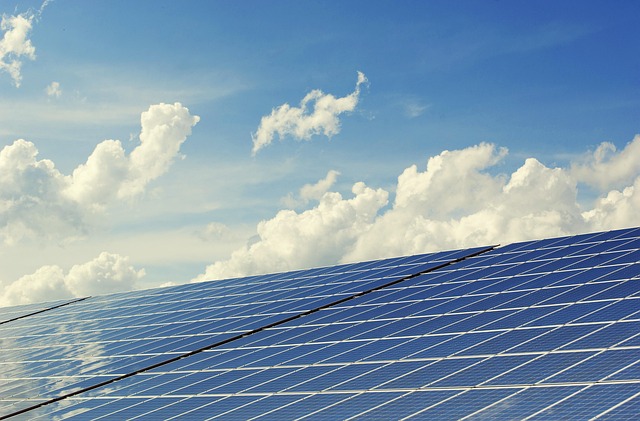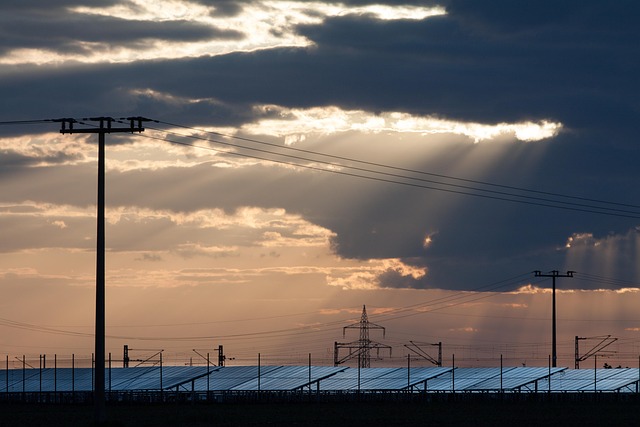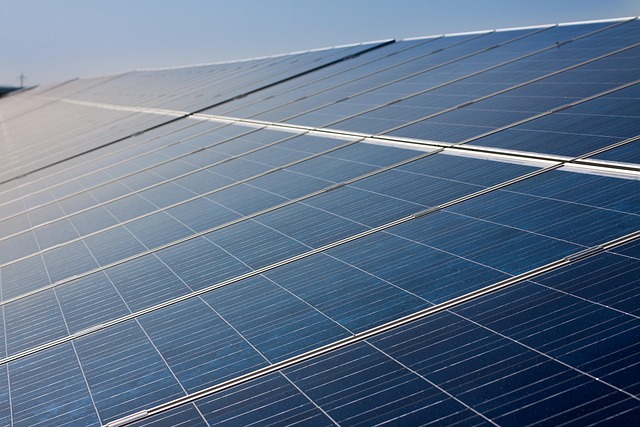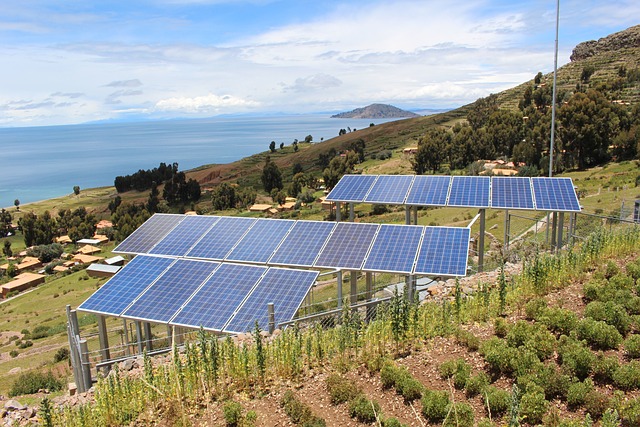Solar installer licenses are essential for safe, efficient solar panel installations worldwide. Requirements vary by region, encompassing training, certifications, experience, and examinations. These regulations maintain project quality, reliability, and public trust in the solar energy industry. Understanding licensing mandates is crucial for both consumers seeking reliable services and installers aiming for regional compliance.
“Are solar panel installers licensed? Uncovering the essential requirements for ensuring safe and high-quality solar installations, this comprehensive guide explores the legal landscape surrounding solar energy. We delve into the varying legal obligations for solar installers across regions, highlighting the significance of licenses and certifications.
From understanding license types to the benefits of hiring licensed professionals, this article navigates the process, importance, and impact of licensing in the thriving industry of solar panel installation.”
- Understanding Solar Installer Licenses: An Overview
- Legal Requirements for Solar Installation in Different Regions
- Types of Licenses and Certifications for Solar Installers
- The Impact of Licensing on Solar Panel Safety and Quality
- Process of Obtaining a License to Become a Solar Installer
- Benefits of Hiring Licensed Solar Panel Installers
Understanding Solar Installer Licenses: An Overview

In many regions, solar installer licenses are a crucial aspect of ensuring safe and efficient solar panel installation. These licenses serve as a regulatory mechanism, verifying that installers possess the necessary skills, knowledge, and training to handle the complex tasks involved in solar energy systems. Obtaining a license typically requires passing rigorous exams and demonstrating proficiency in various aspects of solar panel installation, electrical work, safety protocols, and system design.
The requirements for solar installer licenses can vary widely depending on local laws and regulations. Some areas may mandate specific training programs or certifications from recognized institutions. Others might demand a certain level of experience or successful completion of practical examinations. Staying informed about these regulations is essential for both consumers and installers, as it safeguards the quality and reliability of solar energy projects while fostering public trust in the industry.
Legal Requirements for Solar Installation in Different Regions

In many regions, solar panel installation is subject to strict legal requirements aimed at ensuring safety and quality. These regulations vary significantly across different countries and states, reflecting a global push towards renewable energy adoption. One of the most crucial aspects is licensing for solar installers. Obtaining a license typically involves rigorous training, practical experience, and passing an examination to demonstrate proficiency in solar panel installation best practices. This process guarantees that only qualified professionals handle these intricate systems, reducing potential risks associated with faulty installations.
For instance, in North America, many states mandate that solar installers be licensed or certified by recognized authorities. The specific requirements often include proof of training, insurance, and a proven track record. Similarly, in Europe, the installation of solar panels is regulated to maintain safety standards. Solar installers may need to obtain specialized certifications, such as those offered by industry bodies, to legally install solar systems. Understanding these legal mandates is essential for both homeowners seeking reliable solar panel services and professional installers aiming to stay compliant with regional regulations.
Types of Licenses and Certifications for Solar Installers

The types of licenses and certifications required for solar installers vary by region, reflecting the diverse regulations in the solar energy sector. At a minimum, many locations mandate that solar installers be licensed or registered professionals to ensure safety and quality standards during installation. These licenses often cover aspects like electrical work, as solar panels are integrated into a building’s electrical system. Some regions also require specific certifications focused on solar energy technology and safety protocols. The most recognized certification globally is the North American Board of Certified Energy Practitioners (NABCEP) certification, which demonstrates expertise in design, installation, and maintenance of renewable energy systems.
Additionally, many solar installers pursue industry-recognized credentials like those offered by professional organizations dedicated to promoting solar energy. These certifications not only signify competence but also demonstrate a commitment to staying updated with the latest advancements in the field. For instance, the Solar Energy Industries Association (SEIA) offers various training programs and certifies professionals at different levels, from entry-level technicians to advanced installation specialists. Having such licenses and certifications reassures homeowners that their solar panel systems are installed by qualified professionals who adhere to established best practices, enhancing system performance and safety.
The Impact of Licensing on Solar Panel Safety and Quality

The licensing of solar panel installers plays a pivotal role in ensuring safety and quality in the industry. In many regions, solar installers are required to obtain specialized licenses to operate legally. This regulatory measure is designed to safeguard consumers from potential hazards and subpar installations. Licensed professionals undergo rigorous training and examinations, demonstrating their expertise in handling complex solar systems. By mandating these credentials, governments can ensure that only competent and knowledgeable individuals install solar panels, thereby reducing the risk of accidents or faulty work.
Such licensing also fosters a culture of excellence among solar installers. With potential customers able to verify the credentials of service providers, there is increased transparency and trust in the market. This encourages industry professionals to maintain high standards, using the latest technology and techniques to optimize system performance. Consequently, homeowners and businesses can rest assured that their investments in solar energy are secure, knowing that licensed solar installers adhere to strict safety and quality guidelines.
Process of Obtaining a License to Become a Solar Installer

Becoming a licensed solar installer involves a structured process that varies by region. Typically, aspiring solar installers must first complete a formal education or training program focused on solar energy systems. This could be through community colleges, trade schools, or online courses, all of which equip individuals with the technical knowledge required to install and maintain solar panels effectively.
After acquiring the necessary education, potential solar installers need to pass specific exams to obtain their licenses. These exams assess their understanding of solar technology, electrical systems, safety protocols, and local building codes. Once passed, they apply for a license through their relevant governing body. This involves submitting the required documentation, paying fees, and potentially demonstrating practical experience. Upon approval, individuals are authorized to offer their services as certified solar installers, ensuring compliance with industry standards and legal requirements.
Benefits of Hiring Licensed Solar Panel Installers

Hiring licensed solar panel installers offers numerous advantages for homeowners looking to invest in clean energy. Firstly, licensing ensures that the installers possess the necessary skills and knowledge to handle intricate solar panel systems safely and efficiently. This is crucial as solar installations involve working at heights and dealing with electrical components, requiring a high level of expertise. Licensed professionals undergo rigorous training and pass exams, guaranteeing their competence.
Moreover, licensed solar installers adhere to industry standards and regulations, providing peace of mind. They are up-to-date with the latest technologies and best practices, ensuring your system is installed correctly and meets safety requirements. This reduces the risk of accidents or malfunctions, protecting your home and investment. Additionally, licensing often translates to better insurance coverage, offering financial protection in case of any installation-related issues.
In conclusion, licensing for solar panel installers is a non-negotiable aspect of ensuring safe and high-quality solar energy installations. As the solar industry continues to grow, understanding regional legal requirements and obtaining the necessary licenses becomes paramount for both installers and consumers alike. Hiring licensed solar panel installers not only guarantees compliance with local regulations but also provides peace of mind, knowing that your investment is in capable hands. This ensures the long-term performance and safety of your solar energy system, making it a crucial step towards a sustainable future.
